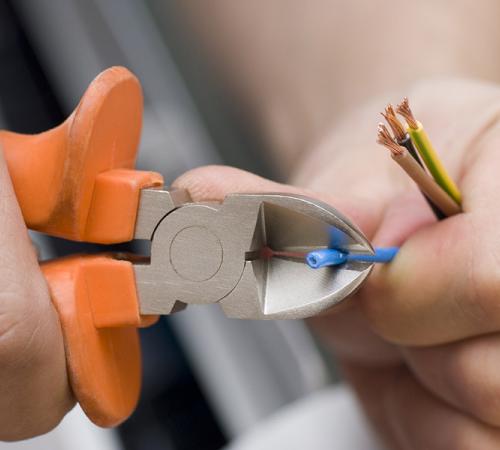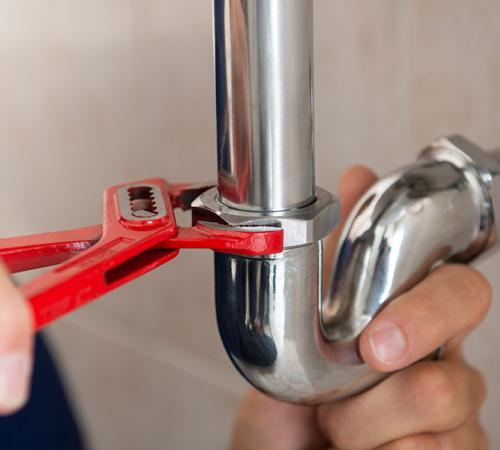
Protecting your tools and your livelihood with tradesmen’s insurance

One of the joys of being a self-employed tradesman is the hands-on nature of the job. And as your own boss, you have flexibility and control over when and where you work so no two days are ever the same.
Unfortunately, there are downsides to running your own tradesman’s business. Between drumming up enough work to keep you going, putting money away for a rainy day and – worst of all – doing your own taxes and having to find the right indemnity or public liability insurance, there’s a lot of risk and responsibility. One of the most serious problems facing trade workers is tool theft. If your business is the victim of crime, it’s a personal hit – one which can leave you unable to work, and financially vulnerable.
The growing problem of tool theft
Police figures suggest that the theft of tools from tradesmen is a growing problem. In 2017, figures indicated that reports of this type of crime had risen by nearly two-thirds in two years, with a van being broken into, on average, every 23 minutes in the UK.[1]
It’s a lucrative endeavour for thieves, often with thousands of pounds worth of equipment being stolen. But for a self-employed tradesman, tool theft can be crippling.
The true cost of tool theft
A tradesman’s tools are their livelihood. Whether you’re a builder, plumber, carpenter or property maintenance professional, there are tools you need to do your job. And as is the case with most professional equipment, those tools don’t come cheap.
A comprehensive tradesman insurance package should cover you for theft of equipment. But no matter how quickly your insurance company covers you, you may still have to wait to replace your equipment and, therefore, be unable to work.
How to prevent tool theft
In an ideal world, keeping your tools safe would be as simple as locking your van. Unfortunately, thieves aren’t easily put off, and have developed ways of overcoming the traditional deterrents. For real peace of mind, you will want to put as many of the following tips as possible into practice:
1. Consider bringing your tools indoors
The easiest time for thieves to strike is at night, while you’re sound asleep in bed. Although bringing your tools indoors won’t protect your van from potential damage, it will mean that your tools are secure, even if criminals gain access to your vehicle via a skeleton key or other means.
2. Upgrade your locks
If your locks are old, they might not stand the test of a determined criminal. Consider getting old locks replaced or investing in a deadlock. A slamlock could be handy if you have a habit of leaving the van doors open while you work. Additionally, if you store your van in a garage during the night, make sure the garage lock is up to scratch.
Even if your vehicle has an electronic locking system, you could still be vulnerable. Some thieves use jamming devices which block the signal from your lock – so be sure to double check the doors are secure before leaving your property unattended.
3. Install an alarm
‘Peel and steal’ is a technique that is frequently used to gain access to tradesmen’s vehicles. Using their knees, criminals leverage their body weight against the door of the van. Then, like you would open a tin can, they peel back the upper lip of the door with their hands and expose the tools inside. Installing an alarm system may stop a thief in their tracks, and let anyone nearby know that they should be alert to suspicious behaviour.
4. Mark your tools
No matter how well you protect your tools, you could still fall foul of theft. By marking your tools you can give yourself the best chance possible of recovering them after a crime. Using paint, permanent marker, or by etching an identification onto your equipment, it makes it clear who the owner is. This makes it difficult for the thief to sell your property on without suspicion.
We also recommend photographing your tools and keeping a note of their serial numbers before a crime occurs. If these are included in a police report and your property is recovered, it makes it easier to verify you as the rightful owner.
5. Keep your tradesman’s insurance up-to-date
Not every crime can be prevented, and not every criminal can be caught, but with comprehensive tool insurance behind you, you’re supported if the worst should happen to your equipment.
Tackling tool theft together
When confronted with the growing problem of tool theft, you might feel powerless. But by protecting yourself and working with other tradesmen in the community, you can fight against this kind of criminal activity.
- Keep up-to-date information about your tools, including: photographs, serial numbers and identifying marks
- Always inform the police if a crime occurs
- When buying tools second-hand, make sure you check the story of the person who is selling them. And remember, if a price seems too good to be true, it probably is
- Get on social media. There are plenty of groups where tradespeople post about stolen goods, suspicious sellers and criminal activity
Doing your best to protect your tools from theft doesn’t just benefit you – it may help to deter criminals from targeting other traders. So, take steps to protect your property, today. Read about how portable equipment cover could benefit your business.
[1] http://www.bbc.co.uk/newsbeat/article/39744644/epidemic-of-van-tool-thefts-blamed-on-skeleton-key
Disclaimer:
At Hiscox, we want to help your small business thrive. Our blog has many articles you may find relevant and useful as your business grows. But these articles aren’t professional advice. So, to find out more on a subject we cover here, please seek professional assistance.



